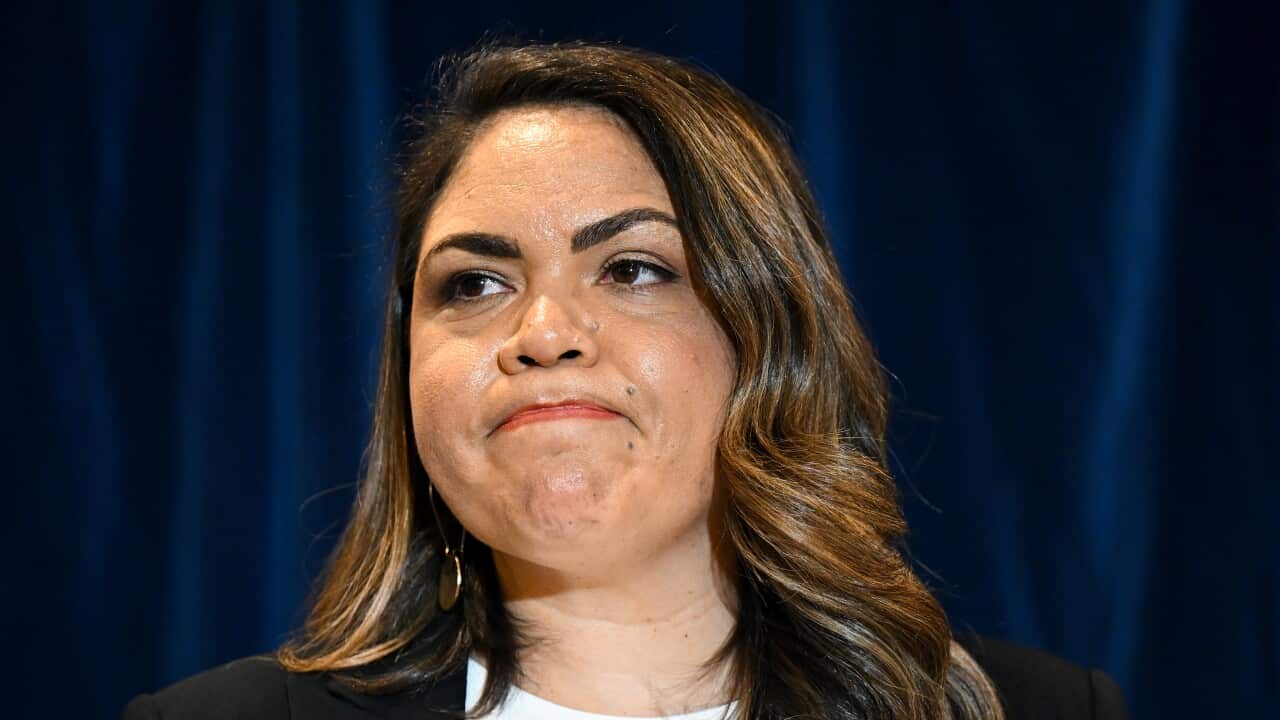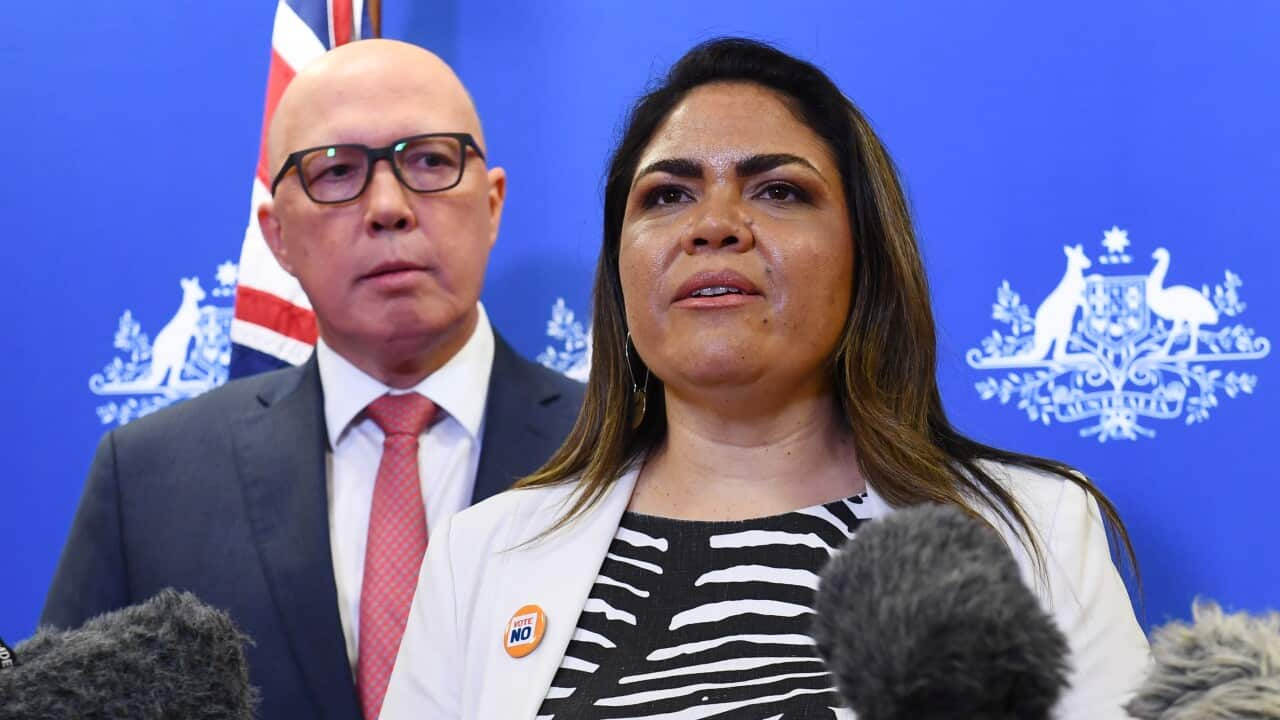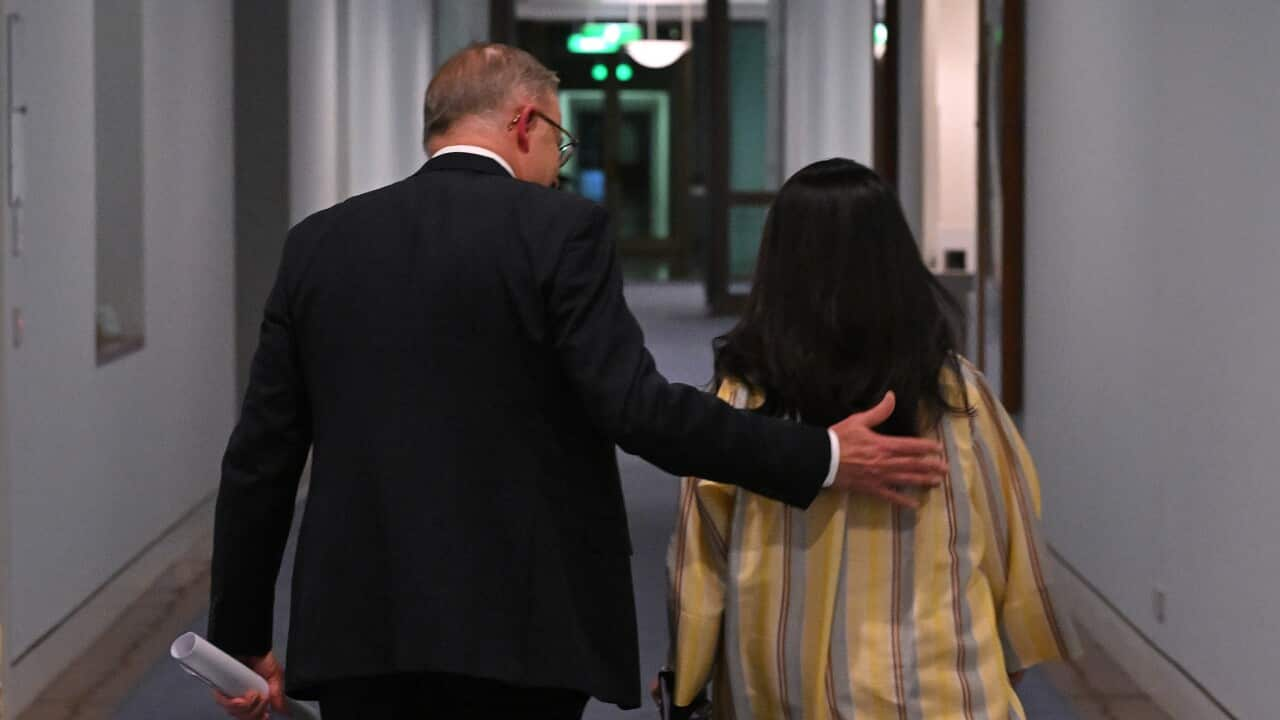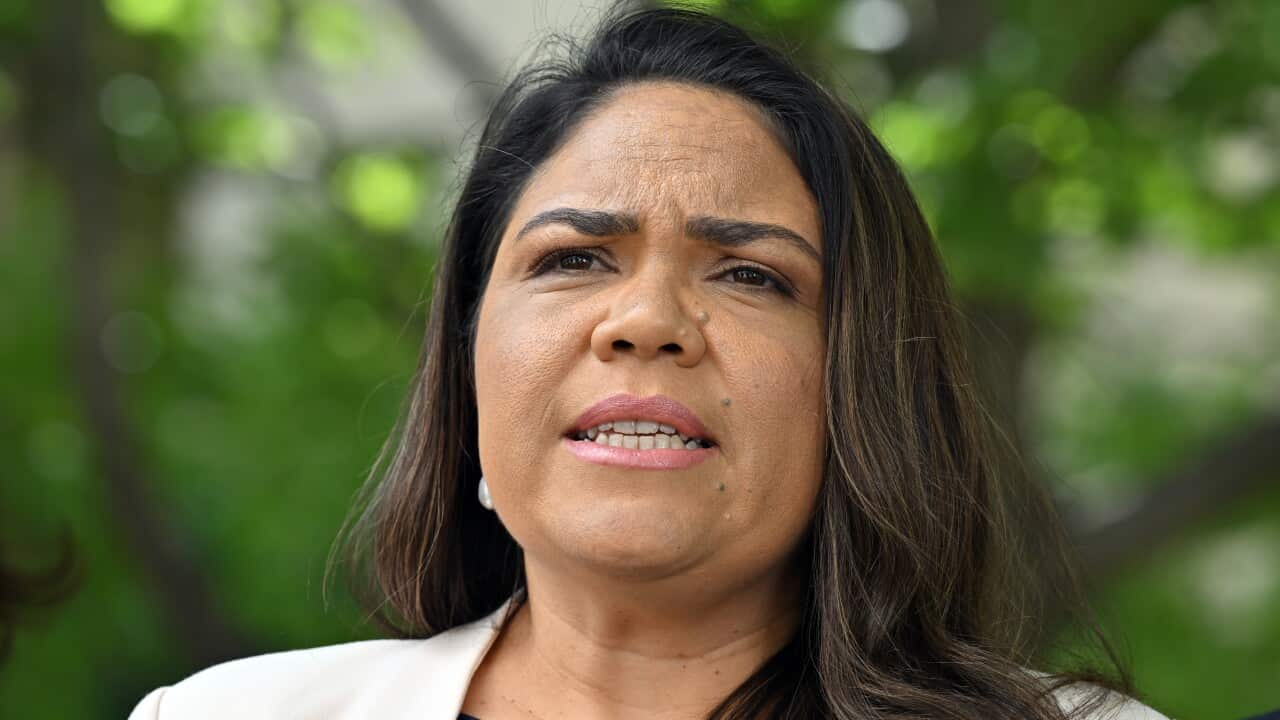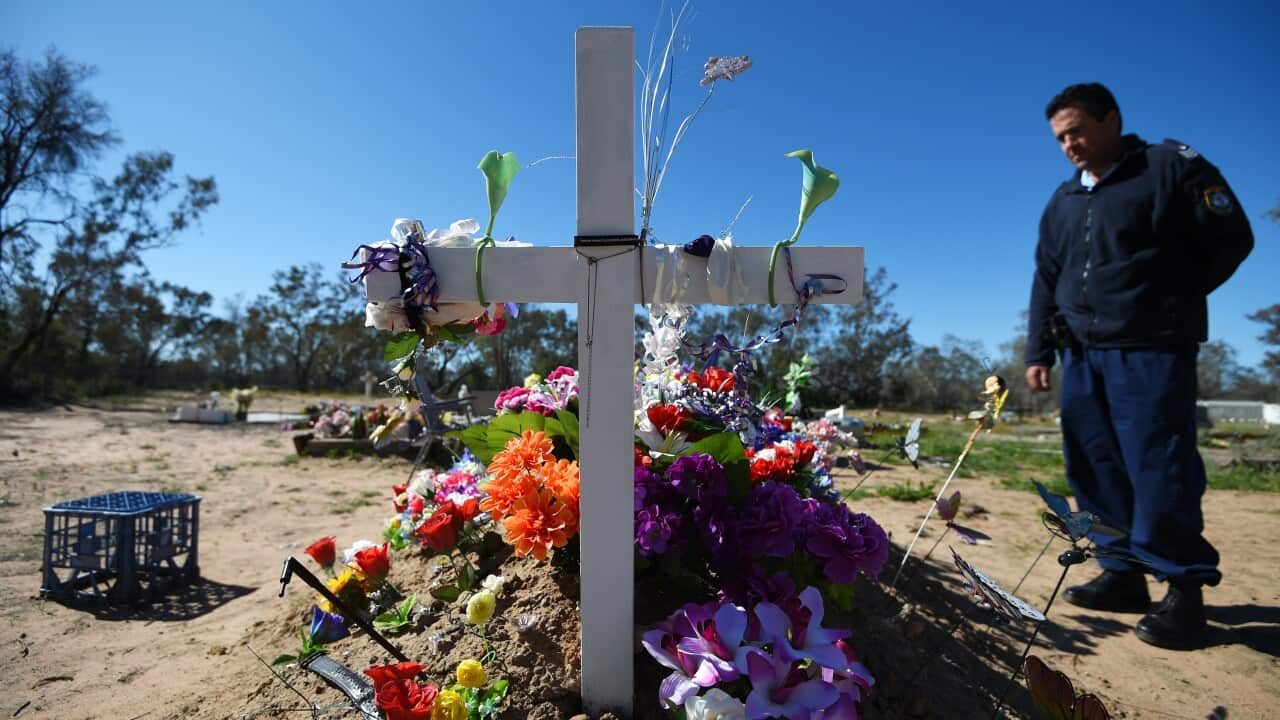Key Points
- The Coalition has been accused of politicising the issue of child sexual abuse.
- Jacinta Nampijinpa Price outlined her own niece's experience of sexual abuse before the motion was rejected.
- More than 50 Indigenous organisations and welfare groups argued the singling out of Indigenous communities is unwarranted.
WARNING: This article contains distressing content
The Opposition has been criticised for "demonising" First Nations communities and politicising the issue of Indigenous child sexual abuse amid heated debate throughout the week.
Greens senator Dorinda Cox labelled comments by Liberal senator Hollie Hughes on the floor of parliament as “vulgar, highly inappropriate, offensive and a misrepresentation of what was said.”
Cox was speaking to a Coalition motion calling for a royal commission into child sexual abuse in Indigenous communities, made in the wake of .
“This motion… is not in good faith,” she said.
“[It] will just be another segue into the intervention-type approach to demonise First Nations people in this country. It will be dressed up to demonise our communities and our culture.”
“Culture is definitely not the issue here; it is about poverty-"
Hughes then interjected.
“If you’re poor, you can rape children? Really?” Hughes said.

Hughes has not responded to requests for comment.
More than 50 child safety organisations and experts called for the Coalition's proposal into a royal commission not to go ahead.
The motion was voted down in the senate on Thursday by Labor, the Greens and crossbench MPs.
Why are there calls for a royal commission?
Opposition leader Peter Dutton and Shadow Minister for Indigenous Australians Jacinta Nampijinpa Price renewed their calls for a royal commission into child sex abuse on Thursday.
Their call for an independent investigation broke the Indigenous following the rejection of the Voice to Parliament referendum.
Dutton said it was necessary to understand the problem of sexual abuse in Indigenous communities and was a practical initiative to close the gap.
Royal commission investigation times vary.
The report into while the last Royal Commission into Institutional Responses to Child Sexual Abuse was , five years after former prime minister Julia Gillard announced the inquiry.
Why these Indigenous groups are opposing the call
In an open letter, dozens of welfare and Indigenous organisations accused the Coalition of politicising a serious crime.
“These calls for a Royal Commission into the sexual abuse of Aboriginal children have been made without one shred of real evidence being presented,” the joint statement said.
"They play into the basest negative perceptions of some people about Aboriginal people and communities.”
Among the organisations signing the letter were the Coalition of Peaks on Closing the Gap, the National Aboriginal Community Controlled Health Organisation, and SNAICC, the national peak body representing Indigenous children.
They pointed to data from a Child Protection Australia report, stating that non-indigenous children were more likely to be the subject of a substantiated claim of child sex abuse than Indigenous children in 2021-22.
The Australian Institute of Health and Welfare but a closer look at the data showed more reports of neglect, physical abuse and emotional abuse in non-Indigenous children.
Instead of a royal commission, they called for investment in solutions already developed by Aboriginal and Torres Strait Islander people and organisations as outlined in SNAICC's annual report.
Price and Coalition claim 'the facts are clear'
Speaking to SBS on Friday, Liberal frontbencher Paul Fletcher asserted “the facts are very clear that in a number of remote indigenous communities, there is a very serious and systemic problem of children being sexually abused.”
When pressed, however, he could not name a specific community where this was occurring.

Jacinta Nampijinpa Price referred to a family member's experience as she joined Opposition leader Peter Dutton in calling for a royal commission into Indigenous child sexual abuse. Source: AAP / Jono Searle
Speaking in Parliament, Price pointed to the experience of her niece, Ruby, and other anecdotal evidence.
“Ruby, then just 15, was beaten and raped by her own father. Ruby recounts trying to tell her family in Yuendumu of the horrific abuse she was suffering but says they didn't want to believe her,” she said.
“While in the [Northern] Territory, in my hometown of Alice Springs, the opposition leader heard stories of what too many people in remote and rural Australia know all too well—stories of child sexual abuse and stories of children being neglected and abused,” she said.
“Stories of Indigenous Australians are being ignored because their problems and the solutions they are suggesting don’t fit this government's agenda."
2007 NT Intervention previous context to debate
This is not the first time the issue of in Indigenous communities has been the subject of fierce political debate.
In 2006, a report titled 'Little Children are Sacred' found the “incidence of sexual abuse of Aboriginal children is a significant problem.”
The report acknowledged a “number of underlying causes” – including excessive alcohol consumption driven by poverty; unemployment; lack of education; boredom; overcrowding; and drug abuse.
“Together, they lead to excessive violence. In the worst case scenario, it leads to sexual abuse of children,” the report stated.
“However, it does not follow that all Aboriginal males are offenders, or that Aboriginal males are responsible for all offending against Aboriginal children.”
The report's recommendations included consultation with Indigenous people to develop policies that empowered communities.
In 2007, the Howard government responded with the Northern Territory Intervention, which involved the deployment of the defence force, tightening the welfare system, and bans on alcohol and pornography in Aboriginal communities.
The intervention has been widely condemned by Indigenous leaders as paternalistic and a demonisation of Aboriginal people.
There have been 13 inquiries into sexual abuse of Indigenous children since then, three at a federal level.
Labor has dismissed calls for a Royal Commission, urging anyone who is aware of child abuse claims to report them to police.
Indigenous Australians Minister Linda Burney committed to revealing the government’s new plan to Close the Gap in coming months.
“We need to keep listening to Indigenous Australians about what works and what can make a practical difference for the next generation,” she said.
“Because we all want what’s best for our children.”
If you or someone you know is impacted by sexual assault, call 1800RESPECT on 1800 737 732 or visit In an emergency, call 000.
a call on 13 92 76. They offer a free, confidential one-on-one yarning opportunity with an Aboriginal and/or Torres Strait Islander Crisis Supporter, 24 hours a day, 7 days a week.
Anyone seeking information or support relating to sexual abuse can contact Bravehearts on 1800 272 831 or Blue Knot on 1300 657 380 and Kids Helpline on 1800 55 1800 (for young people aged 5 to 25).
